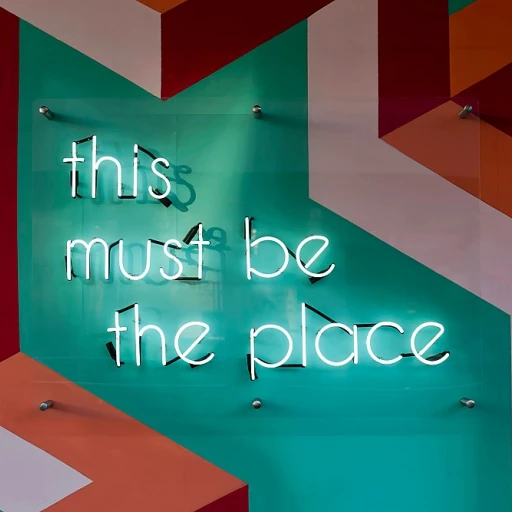
Understanding the importance of recognition in clinics
Why Recognition Matters in Healthcare Teams
Recognition is a cornerstone of a healthy work environment, especially in the healthcare industry. Employees in clinics face unique pressures, from delivering high-quality patient care to maintaining patient safety standards. When staff members feel valued for their hard work, it not only boosts morale but also strengthens employee engagement and performance. Studies have shown that effective employee recognition programs can lead to improved job satisfaction and lower turnover rates among healthcare workers (exploring the benefits of a rewarding career).
The Ripple Effect of Employee Recognition
Recognizing team members goes beyond a simple thank you. It creates a culture of support and collaboration, which is essential for delivering consistent, high-quality patient care. When employees are acknowledged for their contributions, they are more likely to take initiative, support their peers, and uphold the values of the organization. This positive cycle helps clinics maintain a strong focus on both patient outcomes and staff well-being.
- Employee rewards and incentives can motivate staff to excel in their roles.
- Peer recognition fosters a sense of community and shared purpose.
- Recognition programs can highlight professional development and growth opportunities for healthcare employees.
Building a Foundation for Effective Reward Programs
For recognition to be meaningful, it must be authentic and aligned with the values of the health care organization. Programs that celebrate both individual and team-based achievements can help staff members feel seen and appreciated. As clinics consider implementing or refining their reward recognition strategies, understanding the unique dynamics of healthcare teams is crucial. This foundation sets the stage for addressing challenges and designing rewards that truly resonate with employees, which will be explored further in the next sections.
Challenges unique to clinic environments
Unique Pressures in Healthcare Teams
Clinic environments present a set of challenges that make employee recognition both essential and complex. Unlike many other sectors, healthcare workers face high patient volumes, emotional demands, and the constant need to maintain patient safety. Staff members are expected to deliver exceptional patient care while navigating unpredictable schedules and urgent situations. This environment can lead to stress, burnout, and difficulties in maintaining a healthy work life balance.
Barriers to Recognition and Reward Programs
Implementing effective recognition programs in clinics is not always straightforward. Some common barriers include:
- Time constraints: Healthcare employees often have limited time for formal recognition activities due to patient care priorities.
- Resource limitations: Clinics may have tighter budgets, making it challenging to offer substantial rewards or incentives.
- Team-based work: Recognizing individual performance without overlooking the importance of teamwork can be tricky in a collaborative health care setting.
- Shift work and coverage: Staff members work different shifts, which can make consistent recognition and peer recognition efforts more complicated.
Maintaining Employee Engagement Amidst Demands
Despite these challenges, fostering employee engagement and supporting professional development are crucial for both staff retention and patient outcomes. Clinics must find ways to recognize hard work and support their teams, even when resources are stretched. This includes developing creative employee rewards and recognition programs that fit the unique needs of healthcare industry professionals.
For those interested in how different organizations address these challenges and create opportunities for growth, you can explore career opportunities at American Leadership Academy for insights into innovative approaches in healthcare employee support and recognition.
Types of rewards that resonate with clinic staff
Rewards That Truly Matter to Clinic Teams
Recognizing the hard work of healthcare employees goes beyond a simple thank you. In the healthcare industry, meaningful rewards can boost employee engagement, improve patient care, and support a positive work environment. But not all rewards have the same impact. Understanding what resonates with clinic staff is essential for any effective recognition program.- Personalized Recognition: Employees in healthcare value recognition that feels genuine and tailored. Acknowledging individual contributions to patient safety or team-based care can make staff members feel seen and appreciated.
- Peer Recognition: Programs that allow team members to recognize each other foster a culture of support. Peer recognition is especially powerful in healthcare, where teamwork is crucial for delivering quality care.
- Professional Development Opportunities: Many healthcare workers are motivated by opportunities to grow. Offering incentives like training, certifications, or conference attendance shows investment in their long-term success and enhances overall performance.
- Flexible Scheduling and Time Off: Work-life balance is a top concern for clinic staff. Rewards that provide flexibility—such as additional paid time off or shift swaps—demonstrate respect for employees’ personal lives and well-being.
- Monetary and Non-Monetary Incentives: While bonuses and gift cards are appreciated, non-monetary rewards like public recognition, thank-you notes, or wellness programs can be equally motivating. The key is to align rewards with what matters most to your team.
- Team-Based Rewards: Celebrating collective achievements, such as reaching patient care goals, can strengthen team spirit and reinforce the importance of collaboration in the clinic setting.
Aligning Rewards With Clinic Values
Every recognition program should reflect the unique culture and mission of the organization. In healthcare, this often means prioritizing rewards that support both employee well-being and high standards of patient care. When designing rewards recognition programs, consider how each incentive supports the broader goals of your clinic and the needs of your employees. For more insights on how to leverage data to improve your employee rewards program, explore this guide on customer relationship management insights. By choosing rewards that resonate with healthcare staff, clinics can build a culture of recognition that supports both employee satisfaction and patient outcomes.Balancing rewards with work life balance
Finding the Right Balance Between Rewards and Wellbeing
Rewarding clinic team members is essential for employee engagement and recognition, but it’s important to ensure that these programs support, rather than disrupt, work life balance. In the healthcare industry, where staff are often under pressure to deliver high-quality patient care, the way rewards are structured can have a significant impact on both employee wellbeing and patient safety. A well-designed recognition program should motivate employees without encouraging overwork or unhealthy competition. For example, incentives tied to excessive overtime or unrealistic performance targets can lead to burnout and compromise health. Instead, focus on rewards that align with the values of healthcare, such as teamwork, peer recognition, and professional development.- Offer flexible rewards that support personal and professional growth, like additional training or wellness days.
- Encourage peer recognition to foster a supportive environment among staff members.
- Recognize hard work in ways that do not disrupt patient care or increase stress, such as public acknowledgment during team meetings or small tokens of appreciation.
- Ensure that recognition programs are inclusive and accessible to all employees, regardless of their role or shift pattern.
Practical steps to implement a reward program
Building a Reward Program That Works in Healthcare Settings
Creating an effective recognition program for clinic staff requires thoughtful planning and ongoing support. Healthcare organizations face unique pressures, so a reward program must fit the realities of patient care, employee engagement, and the demands on healthcare workers. Here are practical steps to help you implement a program that truly recognizes hard work and supports both staff and patient safety.- Assess Staff Needs and Preferences
Start by gathering input from employees and team members. Use surveys or informal discussions to understand what types of rewards and recognition resonate most. Some staff may value peer recognition, while others prefer professional development opportunities or flexible scheduling. - Set Clear Objectives
Define what you want to achieve with your recognition program. Are you aiming to improve employee engagement, boost performance, or enhance patient care? Clear goals help you measure success and keep the program aligned with your clinic’s mission. - Choose a Mix of Rewards
Combine different types of incentives. Consider both tangible rewards (like gift cards or extra time off) and intangible recognition (such as public acknowledgment or team-based celebrations). This variety ensures that all staff members feel valued for their contributions to health care. - Integrate Recognition Into Daily Work
Make recognition a regular part of your clinic’s culture. Encourage managers and peers to recognize achievements in real time. Simple gestures—like a thank you note or a shout-out during team meetings—can have a big impact on morale and employee recognition. - Provide Training and Support
Equip leaders and supervisors with the tools to deliver meaningful recognition. Training can help them understand the importance of rewards recognition and how to tailor their approach to individual staff members. - Monitor and Adjust the Program
Regularly review the effectiveness of your recognition programs. Collect feedback from employees and analyze outcomes related to patient care, staff retention, and employee rewards. Be ready to make changes as your clinic’s needs evolve.
| Step | Purpose | Example |
|---|---|---|
| Assess Needs | Identify what motivates staff | Survey on preferred incentives |
| Set Objectives | Align program with clinic goals | Focus on improving patient safety |
| Mix Rewards | Appeal to diverse staff | Gift cards, peer recognition, training |
| Daily Recognition | Build positive culture | Thank you notes, team shout-outs |
| Support Leaders | Ensure consistent recognition | Manager training sessions |
| Review Program | Keep program effective | Annual feedback review |
Common pitfalls and how to avoid them
Common Mistakes That Undermine Recognition Efforts
Recognition programs in the healthcare industry can be powerful tools for boosting employee engagement and supporting patient care. However, even well-intentioned reward and recognition initiatives can fall short if certain pitfalls are not avoided. Here are some of the most frequent mistakes organizations make when implementing employee recognition programs, along with practical advice to steer clear of them:- Inconsistency in Recognition: Sporadic or unpredictable recognition can leave staff members feeling overlooked. Consistency is key for building trust and reinforcing positive behaviors. Make sure recognition is part of the regular workflow, not just an occasional gesture.
- One-Size-Fits-All Rewards: Not all employees value the same types of rewards. Healthcare workers have diverse motivations, so offering a range of incentives—such as professional development opportunities, peer recognition, or wellness support—ensures that rewards resonate with different team members.
- Lack of Transparency: If staff do not understand how recognition is earned, the program can seem unfair. Clearly communicate the criteria for rewards and recognition, and involve employees in the process to foster a sense of ownership and trust.
- Neglecting Peer Recognition: Recognition from leadership is important, but peer recognition can be just as impactful. Encouraging team-based appreciation helps build a culture of support and strengthens relationships among healthcare employees.
- Overlooking Work-Life Balance: Sometimes, rewards can unintentionally add pressure, such as incentives tied to extra shifts or overtime. Ensure that recognition programs support, rather than undermine, employee well-being and work-life balance.
- Failing to Measure Impact: Without tracking the effectiveness of recognition programs, it’s hard to know what’s working. Regularly gather feedback from staff and monitor key metrics like employee engagement, patient safety, and performance to refine your approach.













